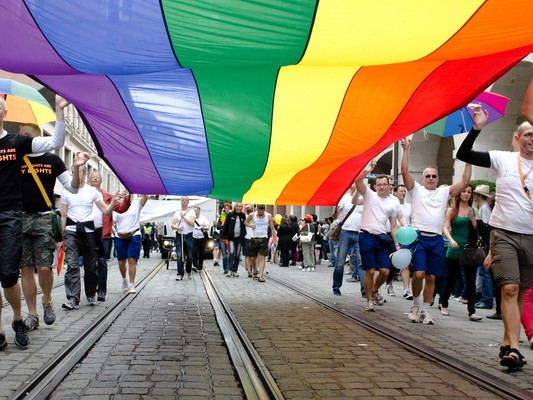WITH the same sex marriage debate raging around the nation, the Gazette has sought out local opinions from both sides of the marriage equality argument. In the first of a two- part series, former Gembrook pastor and now pastor of the Metropolitan Community Church Melbourne, Sue Townsend, argues that same sex unions will not harm the institutions of marriage or family. Next week, the Reverend Dr David Powys from the Anglican Parish of Cranbourne will respond to the same question “In what ways would same sex marriage alter our society?”
MY name is Sue Townsend, and I have had the experience of being able to choose to marry the first love of my life. My husband, Tim, and I were married for 23 years before he died. Despite the second love of my life, Kath, and I being together for eight years, we still do not have the choice to marry.
If same sex marriage was accepted in our society, it would not alter the institution or meaning of marriage. It will still be a life-long commitment between two people who love each other at the exclusion of all others. Same sex marriages were legalised in Canada in 2005 and the divorce rate there has actually declined.
Same sex marriage will not affect the ‘nuclear family’, a relatively new term used in western society to describe male and female parents and their children. (Interestingly more and more heterosexual couples are choosing to become families without marrying first). Gay couples too have the desire to share their love with children in a loving environment. The most important thing for a child’s well-being is not that they are brought up in a family where the parents are heterosexual, but in an environment of love. It is vitally important that all children have good female and male role models. In most societies, extended family or tribe members help look after children, (thus the saying “it takes a tribe to raise a child”) and so children not only have parents as role models, but grandparents, aunties, uncles etc. When my husband died, my two teenage boys (and their sisters) looked to their grandfathers, uncles and close family friends as their male role model influences, and so did not miss out on this important aspect of growing. I’m sure that this is also the case with the 18 per cent of children in Australia who live in one-parent households.
Legalising same sex marriages will not, in turn, lead to the legalisation of marital incest, bestiality or paedophilia (gay people find these acts just as abhorrent as heterosexual people). To argue this is nonsensical and an insult to the intelligence of the average Australian.
The Middle Eastern meaning for a eunuch is “a man who is not interested in women”. Jesus said that some men are made eunuchs (by castration), some choose to be (celibacy) and some are born eunuchs. Studies of animal behaviour and various civilisations by anthropologists throughout time show that there is a percentage of homosexuals in both animal species and in people groups at all times. In many tribal societies, homosexual males are given important roles, such as the shaman, and their sexuality is recognised as something special that they are born with. God, in wisdom, has decided to create some creatures and people to have same sex attractions. To not accept these people not only insults God as creator, but also makes a mockery of Jesus’ example of treating all people as equal and his command to “love your neighbour as yourself”.
In fact, the legalising of same sex marriage will have little, if any, effect on heterosexual people.
However, for same sex couples it will mean that when we can marry, we will be seen as ‘next of kin’ to each other, at present this is not the case and causes many legal headaches for same sex couples. For example, if Kath ends up in hospital, her daughter, as next of kin, would be contacted. She would be the one who could make decisions concerning Kath’s treatment until I can turn up with my Medical Power of Attorney (which I have to have to have any legal say about Kath’s treatment).
It will also remove legislation that allows for discrimination against a sector of society. At present, if I speak to another person and mention my partner, Keith, I will not be judged, however if I speak of my partner, Kath, the person I am speaking to will hesitate and then decide whether they still want to converse with me. While heterosexual people are seen as people that have certain jobs, a certain marital status, children etc. gay people are judged on their sexual preference before anything else. Who you sleep with does not change who you are. Same sex couples cannot walk down the street holding hands without being pointed at and sneered about – let alone kiss in public. If same sex marriage is allowed, it will remind members of society that same sex couples are ‘normal’ and the stigma will dissipate.
All Australians like to think we live in a fair society. At present the rest of the world sees us as a country that allows discriminatory legislation to exist. Let’s remove that stigma from Australia now.







